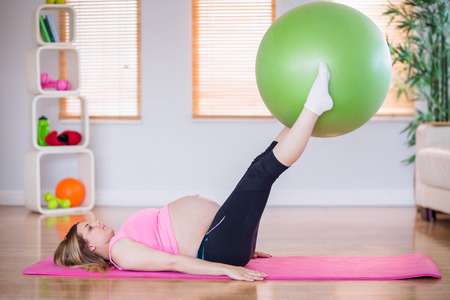Pregnancy Fitness
Learn how to maintain a healthy level of fitness and physical fitness activities during pregnancy.

In this article, you will find:
Staying active while pregnant
Basic guidelines for exercise in pregnancy
How your body adapts
Reasons not to work out while pregnant
Reasons not to work out while pregnant
Contraindications to ExerciseMedical problems that might restrict your exercise in pregnancy include heart or lung problems, infections, anemia, metabolic diseases, high blood pressure, bleeding, and problems with your cervix. If you have an eating disorder or trouble keeping weight on, your exercise should be limited. Problems with prior pregnancies or history of miscarriages might also impose restrictions on workout activity. Also, high levels of physical activity at work or home can limit exercise.
Reasons Not to Work Out in Pregnancy, as Determined by Your Doctor
- Medical problemshigh blood pressure, breathing problems, thin bones
- Problems with previous pregnanciesmore than three miscarriages, pre-eclampsia, pre-term labor
- High-risk pregnancyincompetent cervix, medical complications, high blood pressure, multiples
- High level of physical activity at work or home
Warning Signs to Stop Exercising
- Vaginal fluid leakage or bleeding
- Unusual swelling of arms or legs
- Headaches, dizziness, light-headedness
- Stomach pain, nausea, vomiting
- Back or pelvic pain
- Contractions
- Heart palpitations
- Being unable to catch your breath
- Pregnancy is not the time to try to take on a new program, improve your fitness level, or increase your exercise program. Your goal should be to maintain a healthy level of fitness at moderate levels of intensity. After you give birth, this will translate into healthy fitness at higher levels of intensity.
- You should discuss your exercise program with your doctor and be aware of any special risks or precautions.
- Remember you need more calories, vitamins, and fluids.
- Do not allow yourself to overheat.
- Breathable athletic wear with a supportive bra should be worn. Shoes might have to be bigger than when not pregnant to accommodate for swelling.